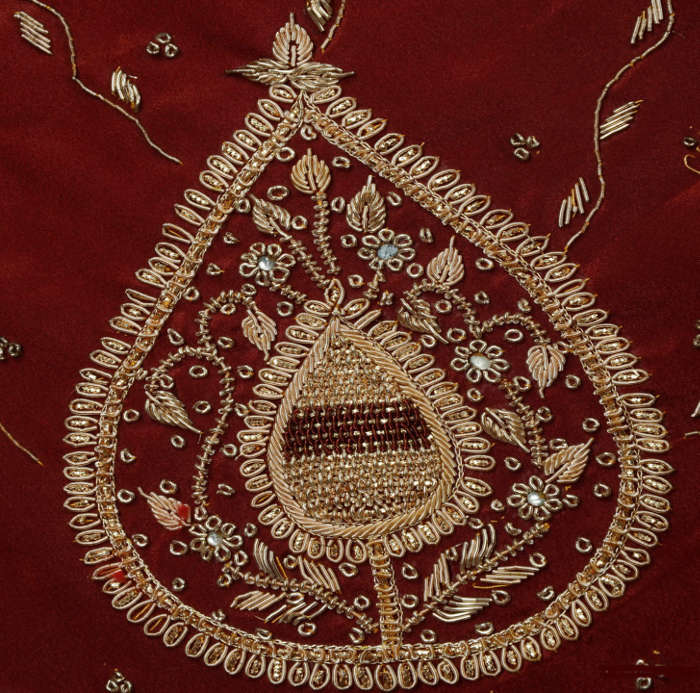FWP:
SETS == IZAFAT
HENNA:
{18,4}
MIRROR: {8,3}
SOUND EFFECTS: {26,7}
I'm glad that Faruqi has done the heavy lifting on this one, since it's so abstract and vague. (My sympathies are divided between Faruqi's view and Nazm's.)
On the nature of henna, see {18,4}.
I'd just like to note the enjoyableness of the sound-sequence of bah dast-e but-e bad-mast . It's almost like a series of permutations; it makes the second line instantly striking. (Test it out, and see how much easier it is to absorb and memorize than the clumsy first line.) All those short, succinct, punchy words really have a bite to them. The sequence also nicely echoes kashmakash in the first line, with its own short a vowels and repeated consonants.
It's tempting to say that these sound patterns cleverly imitate
the back-and-forth effects described in the verse, with the lover's blood-turned
heart and the beloved's blood-red hennaed hands (on henna see {18,4}), and the question of what is
the mirror and what does it reflect. But actually I think an inventive commentator
could always come up with one or another such facile connection, so we should guard against over-reading.

Nazm:
The mirror of the heart has become henna [mih;Ndii]; that is, the longing for a sight has ground it up and turned its liver into blood. Having made the heart into a mirror, it then made it into henna. It's extremely contrived and devoid of pleasure. (259)
== Nazm page 259